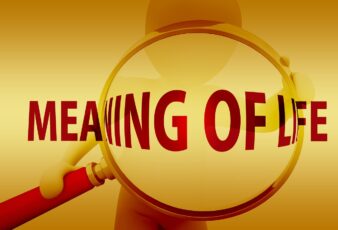Penn professor Paul Goldin discusses the Chinese philosophical text “Lao-Tzu,” also known as the “Tao Te Ching,” which has inspired and intrigued readers for more than two millennia. (June 21, 2021)

A special compilation of in-depth interviews with noted thinkers about how to find meaning and fulfillment in everyday life. Host: C. S. Soong.
Penn professor Paul Goldin discusses the Chinese philosophical text “Lao-Tzu,” also known as the “Tao Te Ching,” which has inspired and intrigued readers for more than two millennia. (June 21, 2021)
William Irvine, a philosophy professor at Wright State University, talks about his book “A Guide to the Good Life: The Ancient Art of Stoic Joy.” (First aired on February 24, 2009)
How do we live a good life? What’s worth pursuing, and what should we avoid? Thomas Hurka, philosophy professor at the University of Toronto, considers these weighty questions in his book “The Best Things in Life: A Guide to What Really Matters.” (July 8, 2013)
Philip Freeman’s translation of Cicero’s classic book on aging has the subtitle “Ancient Wisdom for the Second Half of Life.” Freeman is professor of humanities at Pepperdine University. (May 23, 2016)
Psychotherapist, writer, and academic Mark Vernon discusses his book “Plato’s Podcasts: The Ancients’ Guide to Modern Living.” (April 7, 2010)
Is life worth living? Can believing in something help make it a reality? Do emotions generate actions, or is it the other way around? UMass Lowell professor John Kaag describes how William James, the nineteenth-century philosopher and psychologist, approached and answered these questions. (August 10, 2020)
University of South Florida professor Manu Samnotra discusses what Mohandas Gandhi thought about truth and how to attain it; self-discipline and how to practice it; and modern civilization and how to act in relation to it. (January 8, 2019)
What can we learn from Ralph Waldo Emerson about collectivity and about overcoming social divisions? University at Albany professor Eric Keenaghan takes on the conventional notion that Emerson pushed a kind of radical individualism. (August 27, 2012)
Andrew Pessin, Connecticut College philosophy professor, discusses his book “The God Question: What Famous Thinkers from Plato to Dawkins Have Said About the Divine.” (October 13, 2009)
Joseph Levine grew up in an Orthodox Jewish household and later became an atheist. The UMAss Amherst professor wrote about his journey in the volume “Philosophers Without Gods: Meditations on Atheism and the Secular Life.” (December 20, 2010)